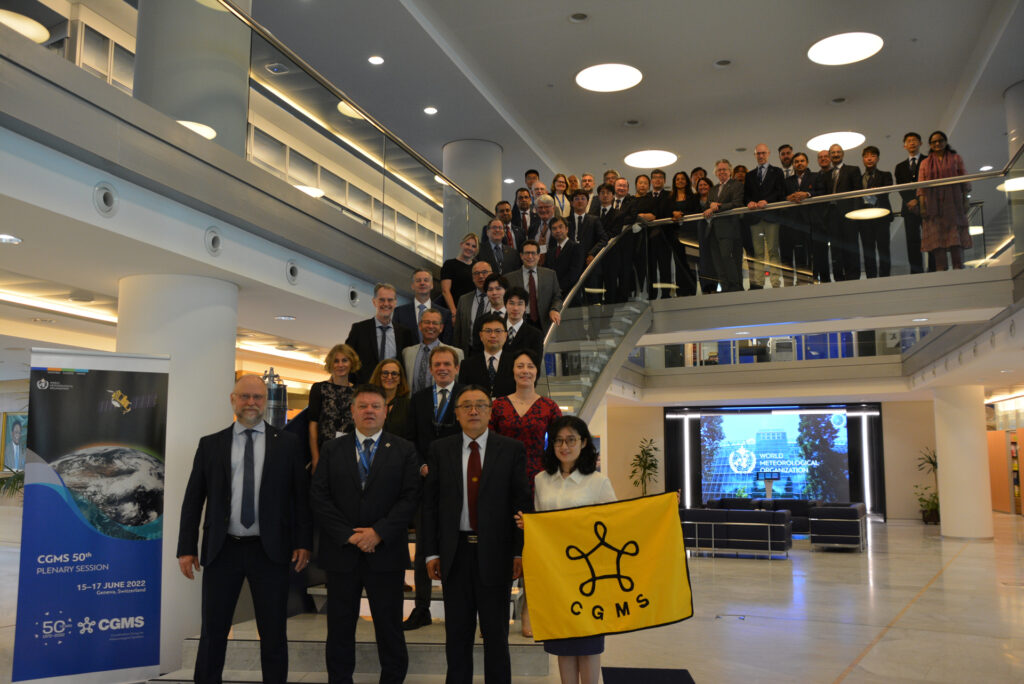A consortium of international space agencies has celebrated 50 years of collaboration on the provision of meteorological satellites vital for weather forecasts, early warning services and climate change monitoring, among other applications.
The Coordination Group for Meteorological Satellites (CGMS) consists of satellite agencies from China, Europe, India, Japan, the Republic of Korea, Russia and the USA, as well as international users including the World Meteorological Organization (WMO) and the Intergovernmental Oceanographic Commission (IOC) of UNESCO.
Phil Evans, director general of the European Organization for the Exploitation of Meteorological Satellites (EUMETSAT) and head of the CGMS Secretariat, said, “In order to meet the expectations of governments, industry and citizens for improved weather forecasts and early warnings of high-impact weather events, the key priority of the CGMS is to continuously deliver high-quality and increasingly accurate observations from space. A globally coordinated response is necessary, and mechanisms like the CGMS will play a key role in this.”
CGMS was established in 1972 by satellite agencies from Europe, Japan and the USA to coordinate the operation and use of fledgling geostationary satellites. Over the years, the membership and remit have expanded to cover an ever-growing number of weather, climate, ocean and environmental monitoring applications.
CGMS has more recently added coordination of climate and greenhouse gas observations as well as space weather (related to solar activity) to its priority areas of activity for the coming decade.
Prof. Petteri Taalas, the WMO’s secretary-general, said, “The power of partnerships is pivotal and will be even more so in the future as we embrace an Earth-systems approach to forecasts and predictions. Satellite observations have greatly increased our understanding of what is happening in our atmosphere, in remote parts of the planet and deep in the oceans. We can predict storm tracks and precipitation patterns and monitor drought and wildfires. This underpins our efforts to strengthen disaster resilience and response and support decision making on climate change mitigation and adaptation.
“CGMS exemplifies the international cooperation that is needed to realize the WMO Integrated Global Observing System as well as initiatives to increase access to early warning systems and to strengthen monitoring of greenhouse gas emissions.”



